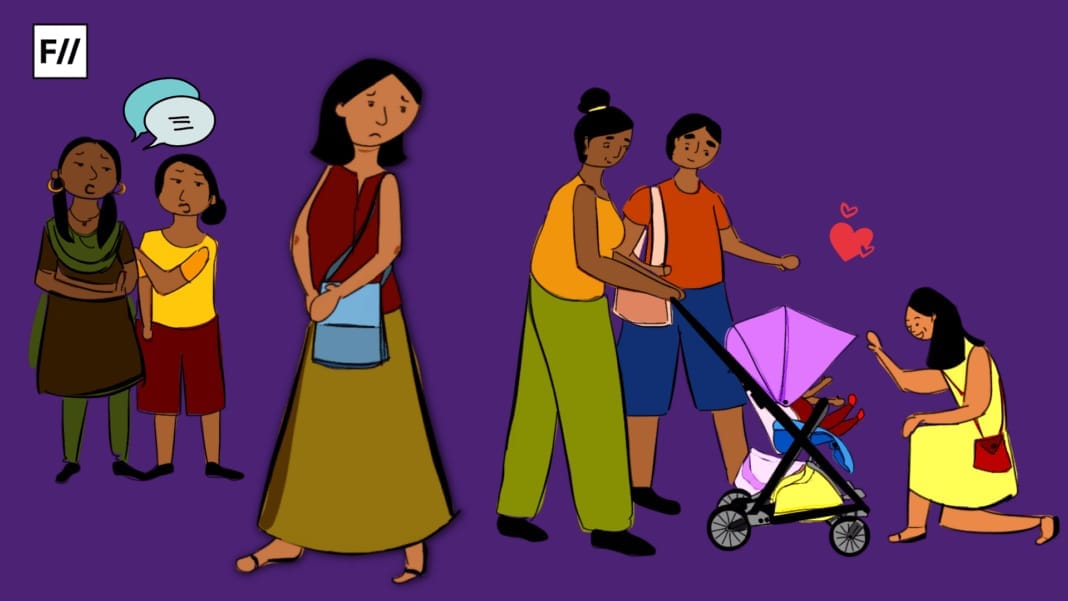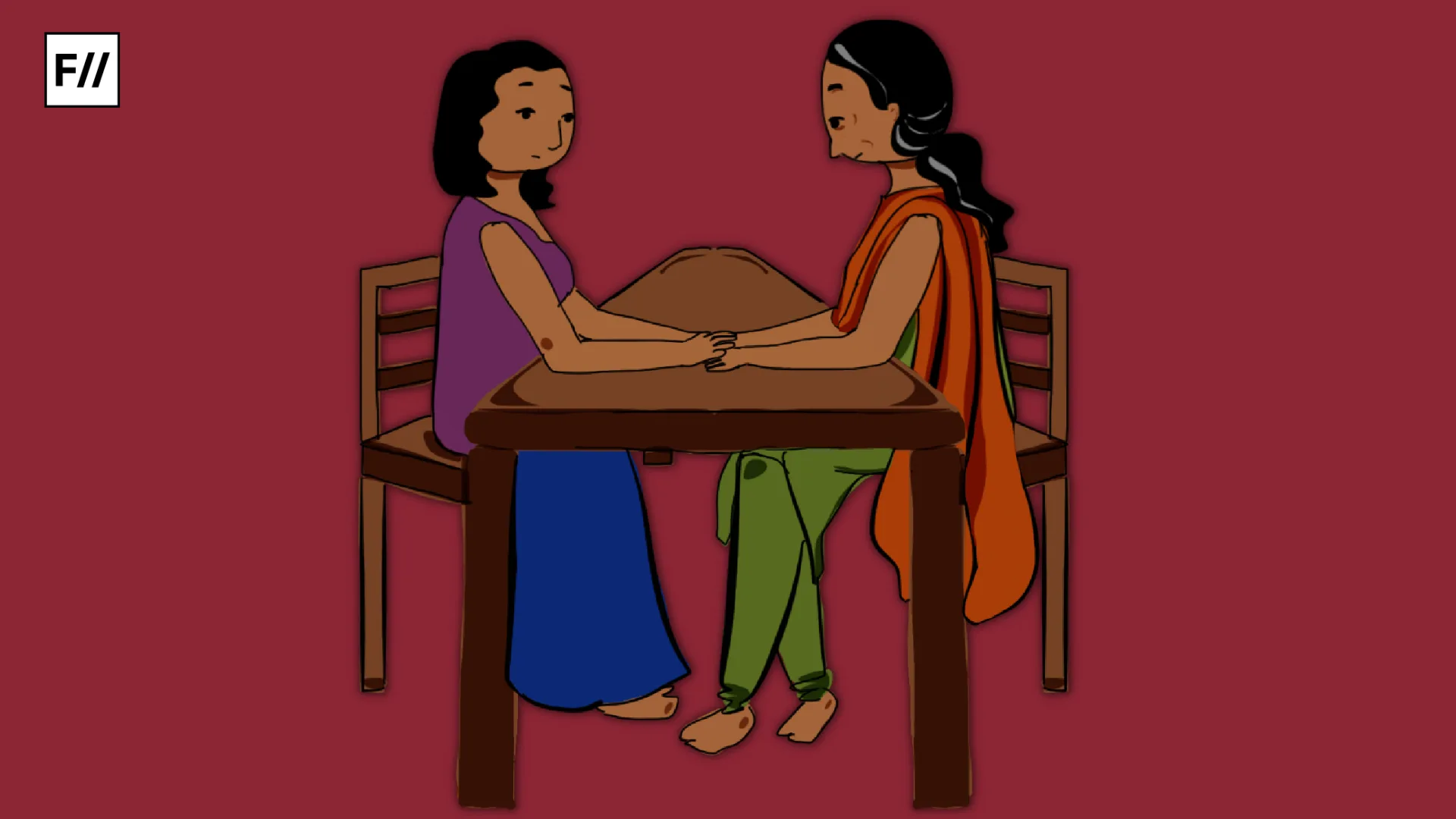‘In the republic of Gilead, where every aspect of life is tracked, women in the state are not only put under surveillance but also have their destiny decided by the state. Those who are forcibly assigned to produce children for the “Commanders” are called Handmaids.‘
To procreate is not a choice where a woman’s worth is determined by her ability to give birth and every aspect of her life, from her social standing to her personal relationships, is shaped by this single function. This is the life in the dystopian fiction of Margaret Atwood’s Handmaid’s Tale.
The recent rise of far right groups around the world and growing debates around abortion rights of women gave rise to several questions. One among them is–what is woman without child?
The recent rise of far right groups around the world and growing debates around abortion rights of women gave rise to several questions. One among them is–what is woman without child?
Across time and space: women and children
Throughout history, women are celebrated for their capacity to train the womb for children. The social status of women is intricately linked to their biological status. Women in history who were ‘baanj’ were often ostracised. Donald R. Johnstone in his book The History of Human Infertility, highlighted the importance of reproduction through ages: ‘The ancient Hindus had a custom which sprang from the worship of the “Lingam,” the erect male organ and the “Yoni,” the female genitalia…The same custom has been visible in the Island of Innisfallen in County Kerry, Ireland, and in hundreds of other places throughout the world.‘
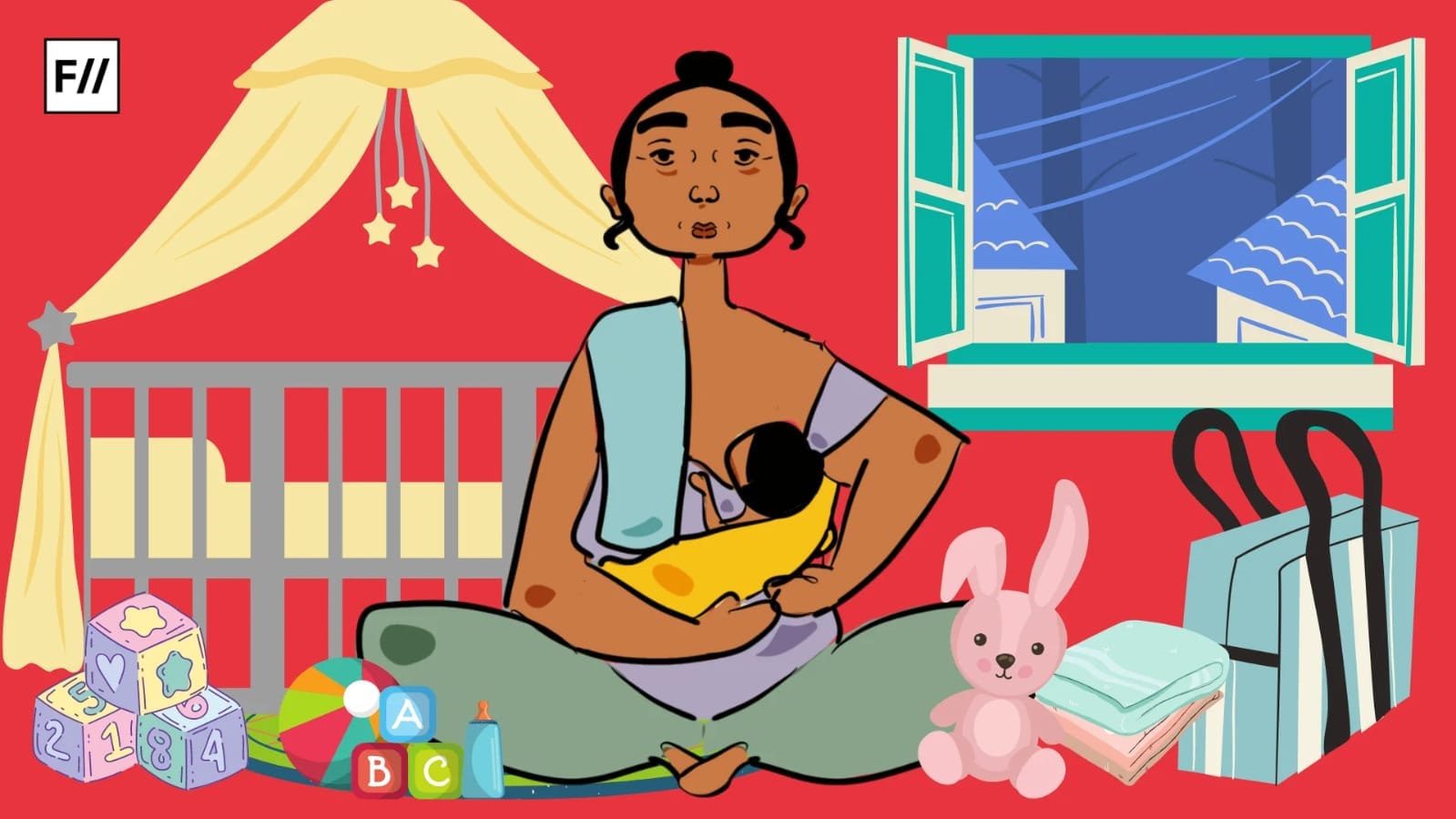
Across time and space, the function of women is perceived to be the same with the glorification of motherhood while linking it to the functionality of the society. For example, in Nazi Germany, women were expected to fulfill their traditional role of bearing and raising children. This not only helped in maintaining the society but also its structure, including the divisions created in the society.
Similarly, the Indian society’s emphasis on procreation has provided the divine blessing to reproduce the “right progeny”, indicating the necessity to maintain the societal structure. Therefore, childbirth is related to continuing the “family name”. This functionality has been an integral part of society and the life of women.
Changing times
These expectations and roles have been validated by various institutions. The institution of marriage provides social sanction to childbirth. The idea of marriage is based on procreation. Section 63, exception 2 of BNS excludes forced sexual intercourse between a man and his wife who is over 18 years of age which reflects the implied consent of the partner and revokes the rights of bodily autonomy. Other such examples are the over-ruling of Roe Vs Wade and Russia’s law to ban “childfree propaganda”.
A woman without a child is seen as someone challenging this age-old set societal regime and doing something which is considered “unnatural”.
This raises the question of whether a woman can control her reproductive destiny and highlights the continued tension between personal choice and societal expectations.
Seeking her own identity
A woman without a child is seen as someone challenging this age-old set societal regime and doing something which is considered “unnatural”. Amrita Nandy in her work Motherhood and Choice: Uncommon Mothers, Childfree Women coined the word “Maternormativity” which means naturalisation of woman as mother, as commonly visible in the society. The idea of woman in social terms has been based on the “motherly” characteristics of caring, having sacrificial tendency and having soft skills and her “womanhood” is measured as per these qualities.
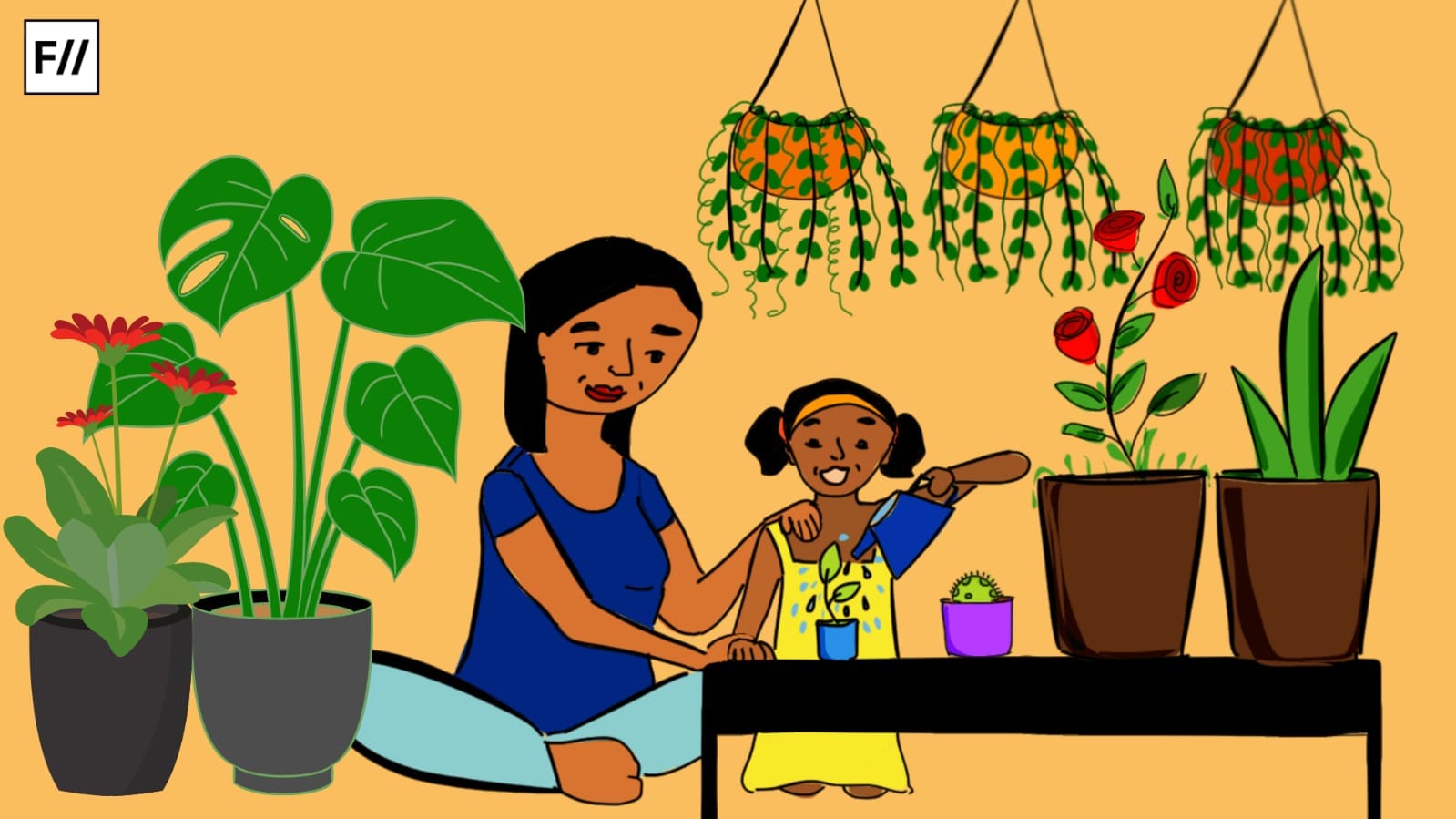
As women, these characteristics and the biological essentialism of childbirth has been internalised so that this has become a part of her identity. They are believed to have maternal instincts – the need of nurturing and caring for the children. Therefore, women without children seem like a paradox. But is this all culturally determined?
Personal choices on having or not having a child
One cannot refute the maternal instincts but this should not be solely attributed to one sex. The natural instincts of caring for one’s own children lies with all the species but the social roles have contributed to this skewed responsibility distribution which needs to be balanced. The decision to have children or not should be based on the desire of both the partners.
In Kate Harper’s words, ‘Children are too precious to be created without consciously deciding why- or why not.‘ The decision to be “childfree” or “nonparent” should be as “natural” as the decision to be “parent”.
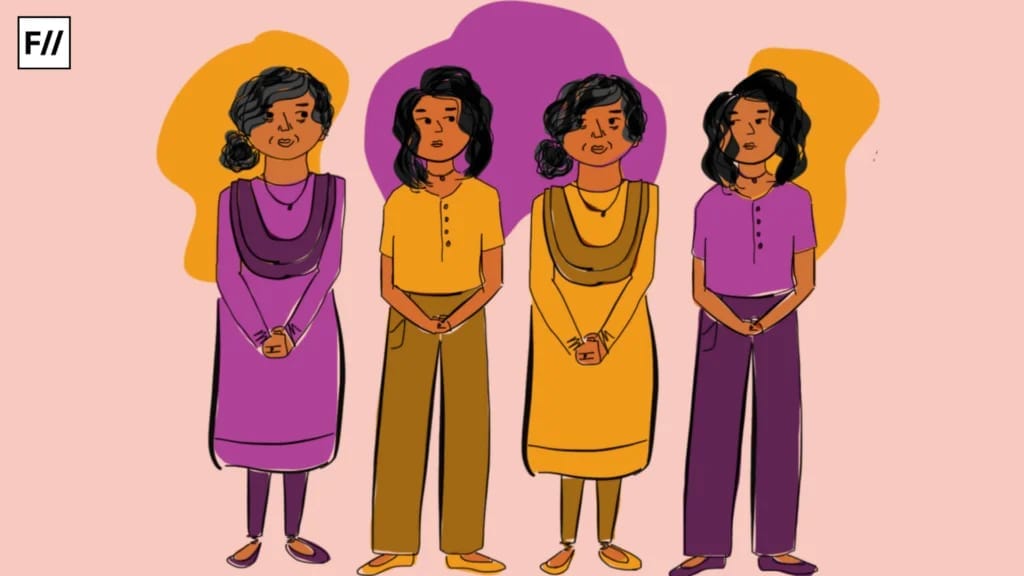
Now the time has come when we all need to accept the change of plot in people’s lives and accept that people, especially women, have the choice to have children or not. We do not live in the republic of Gilead. The proper realisation of right to life with dignity comes with the right to choice – the choice of having a child or not. In Rebecca Solnit’s words –
‘The problem may be a literary one: we are given a single story line about what makes a good life, even though not a few who follow that story line have bad lives. We speak as though there is one good plot with one happy outcome, while the myriad forms of life can take flowers—and wither—all around us.‘
External links:
- https://books.google.co.in/books?id=QhuJDwAAQBAJ&pg=PT5&source=kp_read_button&hl=en&newbks=1&newbks_redir=0&gboemv=1&redir_esc=y#v=onepage&q&f=false
- http://www.sciencedirect.com/science/article/pii/S0015028216348609/pdf?md5=4959eae328018ca9a1658161ded977c9&pid=1-s2.0-S0015028216348609-main.pdf
- https://books.google.co.in/books?id=RHA5DwAAQBAJ&pg=PA2000&source=kp_read_button&hl=en&newbks=1&newbks_redir=0&gboemv=1&redir_esc=y#v=onepage&q&f=false
- https://www.goodreads.com/book/show/434845.The_Childfree_Alternative
- https://books.google.co.in/books?id=dNslDwAAQBAJ&pg=PT8&source=kp_read_button&hl=en&newbks=1&newbks_redir=0&gboemv=1&redir_esc=y#v=onepage
